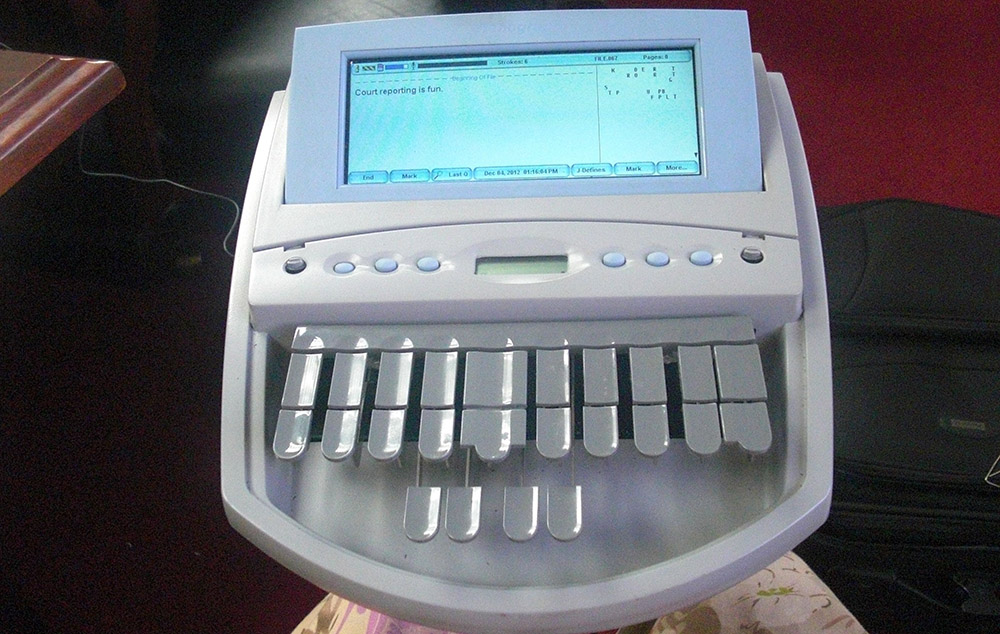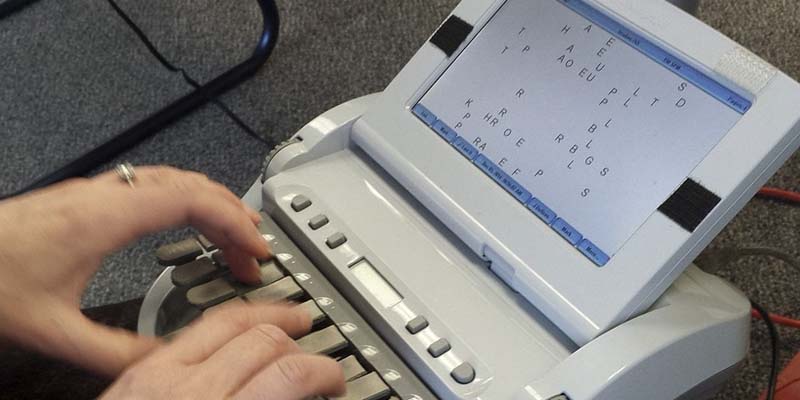Why Court Coverage Is Necessary for Accurate Legal Documents
Court reporting plays a critical function in the legal system. It provides an accurate, verbatim document of court proceedings. This accuracy is important for preserving the stability of lawful processes. Errors in documents can bring about significant repercussions for instance end results. As lawful professionals significantly count on these transcripts, understanding the nuances of court reporting comes to be needed. What factors contribute to the effectiveness of this technique in guaranteeing justice?

The Role of Court Reporters in the Legal System
Stenotype reporter work as the essential web link in between talked testimony and created document in the legal system. They are liable for capturing verbatim accounts of court procedures, ensuring that every word talked is precisely transcribed. This transcription becomes an official record, vital for charms, legal study, and preserving the integrity of judicial procedures. Stenotype reporter use customized tools and strategies, such as stenography, to facilitate this precise documentation. Their role expands beyond simple transcription; they should comprehend lawful terms and court treatments to guarantee clearness and context in their records. Additionally, court press reporters keep discretion and impartiality, contributing to the general fairness of the legal procedure. Their work is essential for celebrations, courts, and lawyers entailed in litigation, as it provides a dependable account of process that can be referenced in future lawsuits. With their expertise, stenotype reporter copyright the criteria of justice within the lawful system.
Making Certain Accuracy in Legal Records
Maintaining precision in lawful records is vital to the honesty of judicial proceedings. Court press reporters play a vital role in catching every spoken word throughout tests, depositions, and other legal settings. Their competence in stenography and knowledge with lawful terminology assurance that records show the precise dialogue and nuances of the case. Any errors or noninclusions can lead to misconceptions, which might detrimentally influence the end results of lawful conflicts.
To achieve this degree of accuracy, stenotype reporter make use of sophisticated innovation and strenuous training to enhance their transcription skills. They likewise involve in thorough review processes, cross-checking their help accuracy prior to finalizing files. Furthermore, guaranteeing correct context and speaker recognition adds an additional layer of reliability to the transcripts. Ultimately, exact legal transcripts act as fundamental papers that maintain the justice system, allowing all celebrations involved to count on an exact document of proceedings.
The Value of Real-Time Reporting
Real-time reporting has actually become a considerable advancement in the area of court reporting, enhancing the efficiency and availability of legal procedures. This technology enables stenotype reporter to transcribe talked discussion immediately, supplying immediate accessibility to records for attorneys, judges, and other lawful workers. With real-time coverage, participants can promptly evaluate arguments and declarations, promoting even more educated decision-making throughout process.
Moreover, this capacity is especially beneficial in complex situations where fast comprehension of details is important. It advertises more clear interaction amongst all celebrations, minimizing the possibility of misconceptions. In addition, real-time transcripts can be shared remotely, benefiting those not able to go to in person, consequently expanding access to justice. As lawful settings come to be significantly vibrant, the duty of real-time coverage in guaranteeing accurate and prompt info circulation can not be overstated, making it an important device in modern-day court reporting techniques
Lawful Documentation and Its Influence On Instance Outcomes
Reliable lawful documents plays an essential role in forming instance results, given that it works as the structure upon which legal disagreements are developed. Precise records assure that all pertinent truths, testimony, and proof are plainly offered, allowing lawyers to build compelling cases. Inaccuracies or omissions in paperwork can lead to misinterpretations, which might negatively influence the court's decision.
In addition, efficient documents assists in efficient situation monitoring, making it possible for attorneys to rapidly reference vital info during proceedings. Judges and courts count heavily on documented proof to recognize the context and subtleties of a situation. The quality of lawful paperwork directly affects the integrity of disagreements presented in court.
Inevitably, thorough and accurate lawful documentation not just enhances the possibilities of desirable end results but additionally promotes the stability of the lawful procedure, ensuring that justice is served precisely and relatively.
Developments in Court Coverage Technology

As modern technology remains to develop, innovations in court coverage have actually substantially transformed how lawful documentation is here generated and taken care of. Developments such as real-time transcription software application allow court reporters to provide instant access to records, boosting the effectiveness of lawful proceedings. Digital recording systems have actually also emerged, offering a reliable back-up to standard methods, while expert system is progressively being incorporated into the documentation process, boosting precision and lowering human error.
Cloud-based systems assist in safe sharing and storage of court files, ensuring that legal groups can access necessary data from anywhere. Remote court coverage has actually ended up being commonplace, allowing lawyers to get involved in procedures no matter of geographical location. These technological developments not just simplify the court reporting process yet likewise enhance the general integrity of lawful documentation. Therefore, the legal area is much better geared up to fulfill the needs of modern-day litigation, making certain that justice is served effectively and efficiently.
Regularly Asked Inquiries
What Qualifications Do Court Reporters Usually Required?
Stenotype reporter typically need a senior high school diploma, specialized training in court reporting, and efficiency in shorthand or voice writing. Certification and licensure demands differ by state, improving their credibility and making certain expert criteria are satisfied.
How Do Court Reporters Maintain Privacy?
Stenotype reporter maintain confidentiality by sticking to strict moral guidelines, making use of safe and secure methods for saving and sending records, and making sure sensitive info is shared only with authorized people associated with the legal proceedings.
Can Court Reporters Operate In Other Settings Besides Courts?
Stenotype reporter can undoubtedly function find here in numerous settings past courts, consisting of depositions, service conferences, and legislative settings up. Their skills in recording talked language properly make them important in any kind of setting calling for precise documents.
What Is the Typical Income of a Stenotype Reporter?
The ordinary wage of a stenotype reporter differs extensively, commonly ranging from $50,000 to $100,000 each year, relying on aspects such as experience, location, and the specific market in which they are used. (durham court reporting)
The length of time Does It Take to Come To Be a Certified Court Reporter?

Court reporters serve as the essential web link in between spoken testament and created document in the lawful system. In enhancement, court reporters preserve privacy and impartiality, adding Continued to the total fairness of the legal process. Innovations such as real-time transcription software program allow court press reporters to deliver immediate access to records, enhancing the effectiveness of lawful proceedings. Court press reporters generally need a high institution diploma, specialized training in court reporting, and proficiency in shorthand or voice writing. Court press reporters can without a doubt work in numerous settings beyond courts, consisting of depositions, service meetings, and legislative settings up.